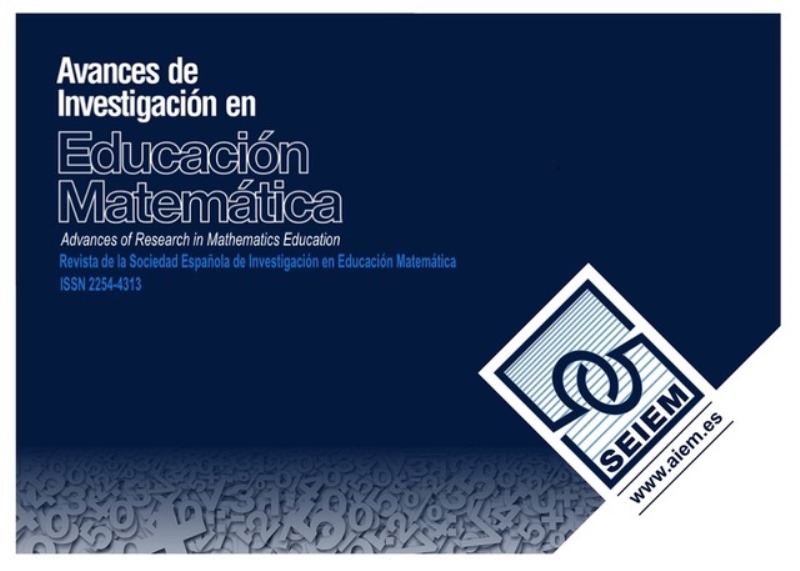Teachers’ knowledge for teaching probability
A global analysis based on DidacticMathematical Knowledge model
DOI:
https://doi.org/10.35763/aiem.v1i7.104Keywords:
probability, teachers, primary education, mathematical and didactic knowledge of teacherAbstract
This article presents a global analysis of the results obtained in an exploratory assessment of Primary School teachers’ mathematical knowledge for teaching probability, based on the DidacticMathematical Knowledge model. In order to evaluate the different facets which comprise this kind of knowledge, the mathematical practices of 93 in-service Primary Education teachers were analized on
the basis of their answers to the CDM-Probability open-ended questionnaire. The results show an inadequate mathematical knowledge for teaching for different categories that compose it. We conclude that there is an urgent need to elaborate intervention programmes for teachers to develop their mathematical knowledge for teaching probability
Downloads
Downloads
Published
How to Cite
Issue
Section
License
The articles published in this journal are under a license Creative Commons: By 4.0 España from number 21 (2022).
Authors who publish with this journal agree to the following terms:
- Authors retain copyright and keep the acknowledgement of authorship.
- The texts published in this journal are – unless indicated otherwise – covered by the Creative Commons Attribution 4.0 international licence. You may copy, distribute, transmit and adapt the work, provided you attribute it (authorship, journal name, publisher) in the manner specified by the author(s) or licensor(s). The full text of the licence can be consulted here: http://creativecommons.org/licenses/by-nc/4.0.
- Authors are able to enter into separate, additional contractual arrangements for the non-exclusive distribution of the journal's published version of the work (e.g., post it to an institutional repository or publish it in a book), with an acknowledgement of its initial publication in this journal.
- Authors are permitted and encouraged to post their work online (e.g., in institutional repositories or on their website) prior to and during the submission process, as it can lead to productive exchanges, as well as earlier and greater citation of published work (See The Effect of Open Access).









